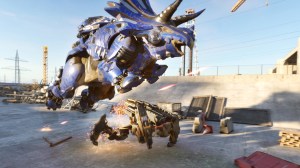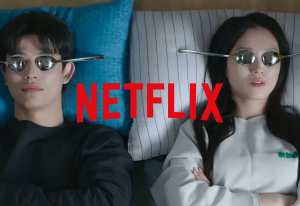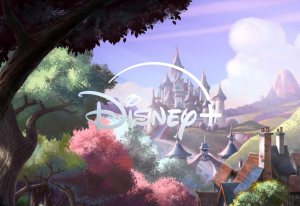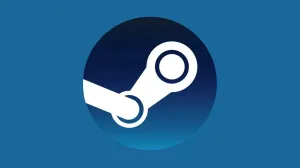Brian K. Vaughan and Pia Guerra’s Y: The Last Man series quickly became one of the most beloved comic book narratives of the 2000s, thanks to its unsettling exploration of a gender-based plague and its apocalyptic ramifications. Due to that popularity, rumors and reports of the storyline being adapted into live-action have been documented for more than a decade, which even included a variety of different performers and filmmakers attached to such projects. Under the leadership of showrunner Eliza Clark, Y: The Last Man is set to debut next week, a project which proves that patience will be rewarded, as this long-form narrative in 2021 is more effective than any other iterations of the narrative could have been. Y: The Last Man premieres on FX on Hulu on Monday, September 13th.
Videos by ComicBook.com
A drama series based on DC Comics’ acclaimed series of the same name by Brian K. Vaughan and Pia Guerra, Y: The Last Man traverses a post-apocalyptic world in which a cataclysmic event decimates every mammal with a Y chromosome but for one cisgender man and his pet monkey. The series follows the survivors in this new world as they struggle with their efforts to restore what was lost and the opportunity to build something better.
ComicBook.com caught up with Clark to talk developing the new series, the evolution it underwent, and what the future might hold for the project.

ComicBook.com: Fans have been given TV series like The Walking Dead or Watchmen, both of which took different approaches to adapting a comic narrative, so when it came to adapting Y, could you talk a little bit about whether it was “let’s try to be as specific as possible, but these are the places to deviate” or was it “let’s take the premise and the characters and their traits and then explore from there,”? What was your overall approach to bring the story to life?
Eliza Clark: I don’t know if this makes me seem lame or not, but Y: The Last Man was the first gift my husband ever gave me, when we were friends and we worked together. I read it 10 years ago and, at that point, I was basically a writer’s assistant. There was no world where I would be the person who got to adapt it, but I loved it and thought about what it would be like as the television show, basically from the minute I started reading it. So I loved the book and I want to honor the book and honor the characters and the stories and the world that Brian and Pia take us through in the book. But, at the same time, I also recognize that it was written 20 years ago and that there are … I think lots of things have changed and lots of things have not changed.
For example, I think our show does a lot to update the idea that chromosomes don’t equal destiny and do not equal gender. So our world is a much more gender-diverse world than the world of the book. I think that is just a richer environment to play with him, but lots of the gender inequality that existed in 2002 when Brian wrote it, in workplaces still exists. I think I would say that fans of the book will see things they recognize and love, but just updated for the time we’re living in.
Regardless of the opinions of sexists and transphobes, what were the discussions like when developing the series of leaning into trans and non-binary characters in this series? Was it a major priority from the get-go or were these themes that organically arose during the development of the series that you wanted to explore further?
I would say that gender diversity was one of the main things that I pitched as part of my take on the material. It felt like a really important part of the story for me, because I think that the show, and the book is this, too, but what I’m so excited about talking about in the show is identity and seeing it through the lens of these characters. We meet them before the event and they go through some pretty spectacular changes between the first and the 10th episode and they will continue to change as the series goes on.
But I think the show is asking, what are the parts of our identity that are us and what are the parts that are imposed upon us by the world? Because I think we all have the systems of oppression that we live within, white supremacy and patriarchy and cisheteronormativity and capitalism. All of these things conspire to create identity in ways that we all need to know about. And then when something this life-altering happens, I think there can be real moments to reflect and change, so that was always central to my adaptation.
You mentioned a little bit earlier about the various industries and the gender dynamics and the gender breakdown and which industries are dominated by which genders. Reading the original book that just rattles off, “Oh, this and this and this are dominated by men,” of course those systems fail. As a reader, you’re able to just say, “Oh yeah, I bet that’s true,” and not actually look into it any further. When it came to researching and planning the series, was there more precision in finding those breakdowns across the world?
We hired a researcher who made up eight, incredible, 600-page binders of research and I learned so much about how f-cked we are. I feel like I talked about this in the TCAs a little bit and then I feel a little dumb being like, “Do you know how important trucks are?” But, basically, what I learned is that our entire economy runs in this … It’s a “just-in-time” economy, so everybody relies on multiple deliveries a day from trucks and 5% of truck drivers are women. Also, this event happens all at once, so there’s car accidents, people are driving to work and then they all die. The streets are choked with cars, planes fall out of the sky, and then you have … It’s a really interesting thought experiment to think about.
If we’re looking at a field that is male-dominated, like engineering or something, and then you do have, there’s obviously people who are not cismen who work as engineers, but it’s just way fewer of them. If you think about the sheer number of catastrophes that there are and the ways that we have to … If there’s a bunch of women working at NASA, are they going to stay working at NASA or are they going to be called up to do something else? Because we still have to maintain the dams and our electrical grid is shoddily constructed and a patchwork of systems that have to constantly be maintained. I think the immediacy of the American economy, in particular, means that we have crumbling infrastructure right now, so what’s going to happen when half the world dies? It’s going to look pretty bleak for a little while.
Not to feed into any of the gossipy or salacious elements of things, but people, when they hear “reshoots” or when they hear about casting changes, nerds, when they hear that stuff, they get terrified about a project, forgetting the fact that Back to the Future originally had Eric Stoltz and it just didn’t really work and then it became this huge blockbuster after reshoots. Could you explain a little bit to clear the air about the turnover this project has seen and how it isn’t some disaster or doomed project that is just barely limping forward? There’s lots of stuff the fans just don’t know about the industry and the casting changes.
I can’t speak to exactly what happened before I came on board, but I’ll say this: I was not brought on to patch holes in a dam, I was brought on for an entirely new take. I got to re-shoot the pilot entirely and rewrite it entirely. From there, besides COVID, we have not had a crazy … It hasn’t been a troubled show. COVID shut everyone down, but we’ve been cooking with gas since the beginning. There were a lot of amazing cast members that I got to inherit, including the people who ended up leaving. But, schedules and whatever, it’s a long time to give to a project if there are things that happened before, you know what I mean? I think people have been attached for a long time and I got to end up with the cast I wanted and needed. I think you will be very excited if you love the books to see this incredible cast. Have you seen Ashley Romans do her thing (as 355)? I mean, she’s incredible.
Get ready for episode four. That’s when you really get to see some pretty spectacular stuff from Ashley.
Who do you think was the most difficult character to cast and who was the performer that you brought in that you knew they were going to do a great job, but they really just blew you away with what they did with the material?
Oh, my God, that’s so hard. Honestly, this is the most talented group of people that I’ve ever worked with and they were all … I know that people say that, but I mean it from the marrow of my bones. We also all got stuck together for eight months in Canada in the middle of a pandemic, so we really became a family. It’s hard to cast any of them. Obviously, Yorick is a particular … It’s tricky to cast somebody who has so many blind spots. He is privileged and he is oblivious and a little bit of a doofus, but you still want to love him and you want to root for him. And I think Ben (Schnetzer) is perfect. He’s exactly what I picture as Yorick.
I would say, I don’t think you’ve ever seen Amber Tamblyn like you’ve seen her in this show. She is playing against every version you’ve seen of her and she’s pretty phenomenal. I got to work with Marin Ireland, who’s my favorite actor from theater and it’s like a dream come true to get to work with her and she’s incredible. They’re all, this cast is … I’m pretty excited because, also, the other thing about them is that the show has this really specific tone, which is true of the book, too. They’re seeing horrific things, they’re in a post-apocalyptic landscape, but comedy and humor are at the core of this story. This cast really rides that tonal line in a way that I’m really proud of.
When you were developing the show, obviously you want it to be timeless and you’re embracing the core concepts of the original story. Did you find, whether it be the pandemic or the recent political conversations, did those happen to infiltrate the narrative in organic ways that you embraced? Or did you try to not lean into it and it’s just a coincidence that so much of the show is so relevant?
It’s interesting because we were two weeks away from shooting when COVID happened, so a lot of stuff had been written before. For example, you’ve seen Episode 2, the people storming the White House, that was written long before January 6th, and we had long discussions in the room about, “Is that really real? Would that really happen?” We decided that it would, and now we’ve seen that it does. But then, because COVID happened and we shut down for a little while, a number of months, I was able to reflect on the things that it was bringing up for all of us. I think it informed so much about the costumes and the hair and makeup. I think it informed … You see the paranoia and conspiratorial thinking that is happening in our country, in particular, and in the world.
In the face of a crisis, people stick to their small, insular communities and I think that’s a lot about what the book and the series is trying to do, is showing the ways we cling to what know until we’re forced out of our bubble. It’s exciting because the writers and I were always thinking about this as a way to talk about systems and structures and the way that they are pervasive inside of our communities in ways we don’t even realize. I think that’s been an important conversation that the world’s been having in the last two years, but it was something we were talking about before, and it has only become more relevant.
Two things I was curious about and I understand if you want to avoid spoilers or have to be cagey, but with the book never explicitly confirming the sole reason for the plague yet presenting a few different options, did you have one cause for the plague in your development or did you also develop the series with multiple possibilities? Also, do you have a trajectory in mind for how long you’d like the series to run to be able to tell your complete story?
I think what’s so great about the book is that it’s not the mystery of what happened, it’s how people create belief systems around what they think happened. I’m very interested in explanations for what happened, but I’m not that interested, really, in what the answer is, because, ultimately, the answer is science fiction. I think that this show and the book are about what happens to people when something like this happens and what do they believe and how does their belief inform the way they create a community? The way they think about themselves, the way they think about the world, and the way they behave? I think the same is true for the series.
But, in terms of how long, I mean, it’s the most fun the fun I’ve ever had. I love this world, I don’t want it to end. I feel like, generally speaking, television shows are best around five or six seasons, and I’ll leave it at that.
Y: The Last Man premieres on FX on Hulu on Monday, September 13th.
This interview has been edited for length and clarity. You can contact Patrick Cavanaugh directly on Twitter.








